Wales devolution: The referendum night the BBC almost got wrong
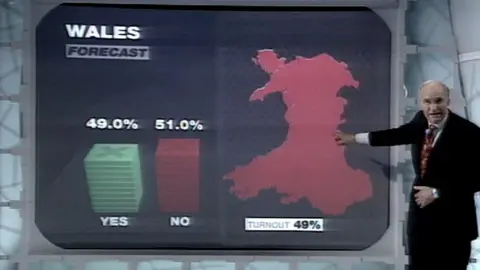 BBC
BBCIn about two years time, BBC Wales staff will be packing their bags, and the corridors and studios of Broadcasting House in Llandaff, Cardiff - our home for the past 50 years - will fall silent as we move to our new headquarters in the city centre.
The old building has been the scene of many dramas over the years, but few could match the real life drama in the early hours of 19 September 1997 when Wales narrowly voted in favour of devolution or - if you believed BBC Wales at one stage - when Wales rejected the idea.
There were two television programmes coming from BH Llandaff that night - an English language programme, presented by Huw Edwards being broadcast throughout the UK on BBC One, and an S4C programme in Welsh featuring Dewi Llwyd and myself.
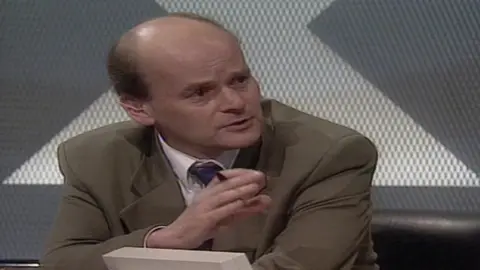
Our two largest studios, C1 (the then home of the long-running Welsh language soap opera of Pobol y Cwm) and Studio 1 (where the National Orchestra of Wales used to hang out) had been fired up and what were then state-of-the-art computer graphics had been prepared.
Everything was ready to go, and with a BBC exit poll suggesting a fairly comfortable win for the Yes side at ten o'clock, we went on air ready for the marathon ahead.
Pretty soon it became clear that Welsh voters weren't going to follow the pollsters' script and that it was going to be close. Very close.
Cardiff voted No while Swansea voted Yes. The south Wales valleys delivered for Labour's big idea while places such as Deeside and Newport were resolutely opposed.
Upstairs, away from the studios, a panel of big brains, political academics, pollsters and the like were under pressure to call it. Time and time again they were asked who had won, and time and time again the answer was the same. It was too close to call.
Finally, after the last but one result (a predictable Yes from Gwynedd), the pressure became too much. They had to come down on one side or the other.
Heads were scratched, biros were chewed and on screens across the UK the graphic appeared suggesting Wales had said No.
In the Welsh studio we weren't so sure. The last county to declare was to be Carmarthenshire, a large county with both a high number of Welsh speakers and industrial valleys - key components of the Yes coalition.
So we hedged our bets a bit, suggesting that the fat lady wasn't quite ready to sing until John Meredith, our reporter at the Carmarthen count, more or less confirmed that the Carmarthen result would turn things round for the Yes side.
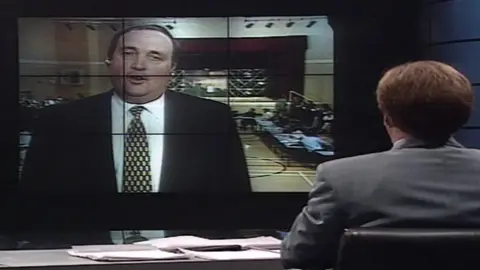
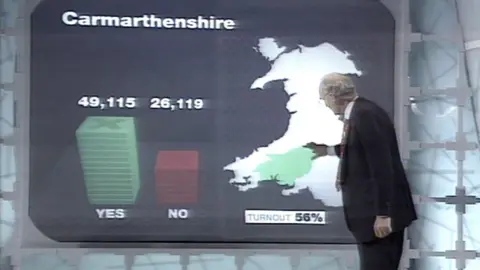
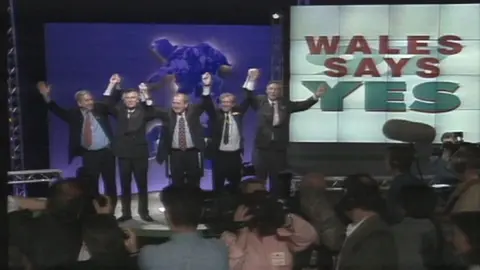
And so it was that, for a few minutes, two different realities existed in Wales. There was an S4C reality where Wales had said Yes and an alternative BBC One reality where we'd probably said No.
The result when it came, excruciatingly slowly, from Carmarthen came as a huge relief for most of Wales' political class. As for that panel of experts, well, let's just say it wasn't their finest hour.
